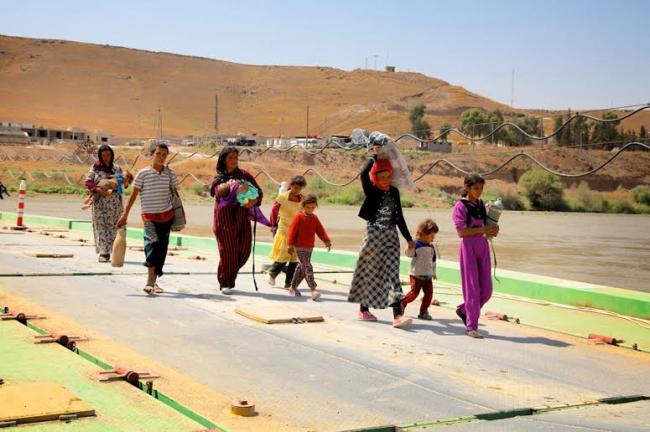
UN expert urges Iraqi Government to protect marginalized ethnic, religious groups
Speaking at the end of her first official visit to Iraq, UN Special Rapporteur on minority issues Rita Izsák-Ndiaye said the message from the Government “must come in the form of legal, policy and institutional protection frameworks with immediate and concrete measures to ensure their security, dignity, rights and equality.”
Since 27 February, Izsák-Ndiaye had been assessing the situation of communities, including the Baha’i, Christians, Faili Kurds, Kaka’i, Sabian Mandaeans, Shabak, Turkmen, Yezidis and Zoroastrians, who constitute minority or ‘component’ groups in the country. She visited Baghdad, Erbil and Dohuk, and their surroundings, including camps for internally displaced persons.
“Due to years of marginalization, conflict, ethnic and religious tensions, and recent terrorism, communities seem to have lost trust in each other and in the Government,” the UN expert said, calling for trust to be rebuilt in order to keep Iraq’s unique cultural heritage and diversity.
Acknowledging that all Iraqi communities have suffered as a result of recent fighting and the “criminal brutality” of the Islamic State of Iraq and the Levant (ISIL), known also by its Arabic acronym Daesh, Izsák-Ndiaye said the smaller communities “feel vulnerable and abandoned and many are questioning their continued existence in the country.”
She underscored that while the Government must prioritize the clear and immediate danger posed by Daesh, the challenges that many minority groups face did not begin or end with the criminal group.
“Longstanding societal discrimination and marginalization of ethnic and religious groups must be more comprehensively acknowledged and confronted,” the expert stated, calling for more meaningful representation in a more inclusive government.
Specific human rights violations
Izsák-Ndiaye expressed concern in particular for Shia and Sunni communities “who find themselves in different locations where they are also under threat, displaced or face violation of their human rights.”
She also voiced alarm for the Yezidi community, whose women and girls have been held captive by Daesh and subject to starvation, sexual slavery, and trade in slave markets for the price of a cigarette pack, and whose men and boys have been victims of targeted and mass killings.
“The perpetrators must be brought to justice to bring the immense suffering of these vulnerable communities to an end,” Izsák-Ndiaye said.
She called also for concerted efforts to free the hundreds of women and girls still held in captivity, and for protection of mass graves and other evidence of atrocities.
Independent experts or special rapporteurs are appointed by the Geneva-based UN Human Rights Council to examine and report back on a country situation or a specific human rights theme. The positions are honorary and the experts are not UN staff, nor are they paid for their work.
Photo: UNICEF/Wathiq Khuzaie
Support Our Journalism
We cannot do without you.. your contribution supports unbiased journalism
IBNS is not driven by any ism- not wokeism, not racism, not skewed secularism, not hyper right-wing or left liberal ideals, nor by any hardline religious beliefs or hyper nationalism. We want to serve you good old objective news, as they are. We do not judge or preach. We let people decide for themselves. We only try to present factual and well-sourced news.







